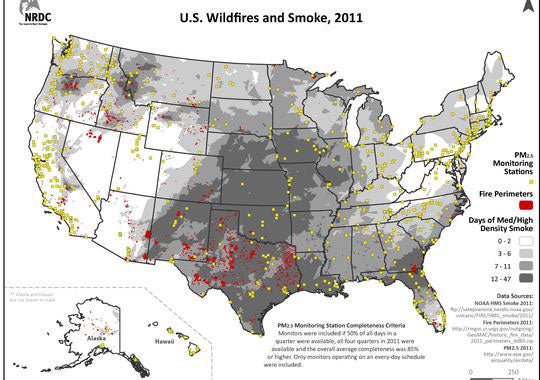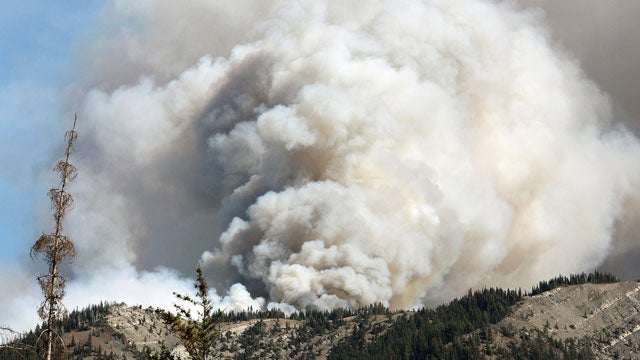A study by the Natural Resources Defense Council (NRDC) has found that . And thanks to climate change-induced dry weather, we are likely to experience more wildfires in the coming years, inceasing the risk of smoke-related health problems.
According to the study, while nearly 22 states didn’t experience wildfires within their borders in 2011, eight of them nevertheless experienced at least a week of medium- to high-intensity smoke, drifting in from wildfires nearby. Illinois, which hosted zero wildfires, had the second-highest number if people affected by wildfire smoke, at 12 million, as shown in this graphic from the NRDC:
��

��
, the study reports, and as the nation dries out from climate change, the likelihood for wildfires increases, and respiratory problems are destined to rise.
“Heat waves are very likely to occur more frequently and last longer,” says Thomas Stocker, co-chair of the Intergovernmental Panel on Climate Change’s Working Group 1.
The NRDC encourages residents not to go outside when the air is smoky, and urges communities to set up more monitoring stations to prevent .


